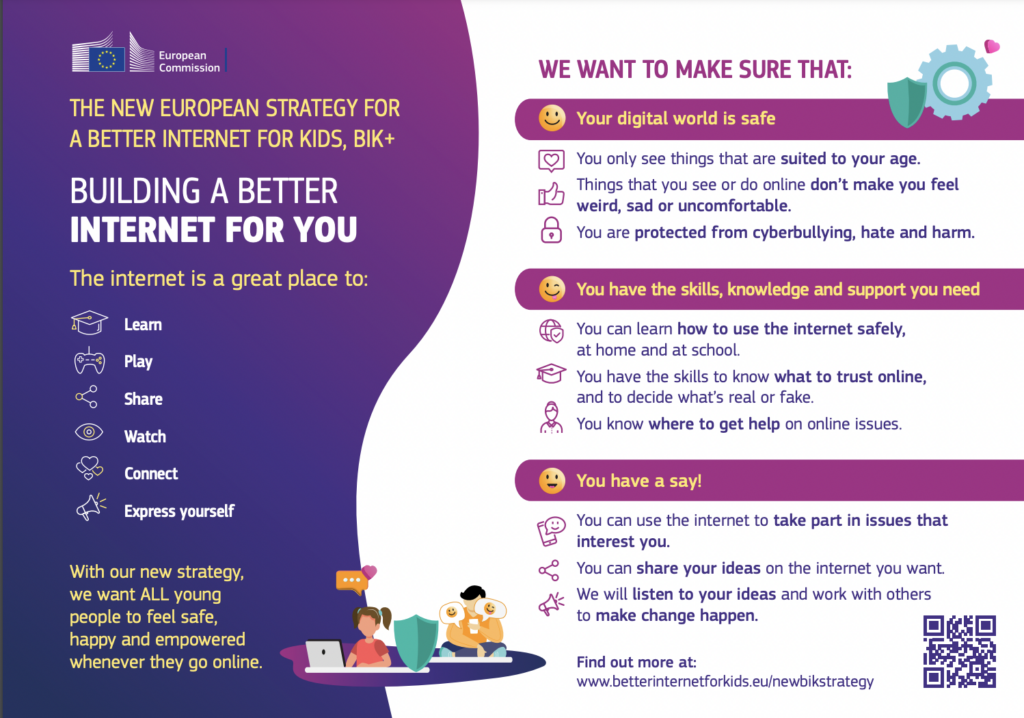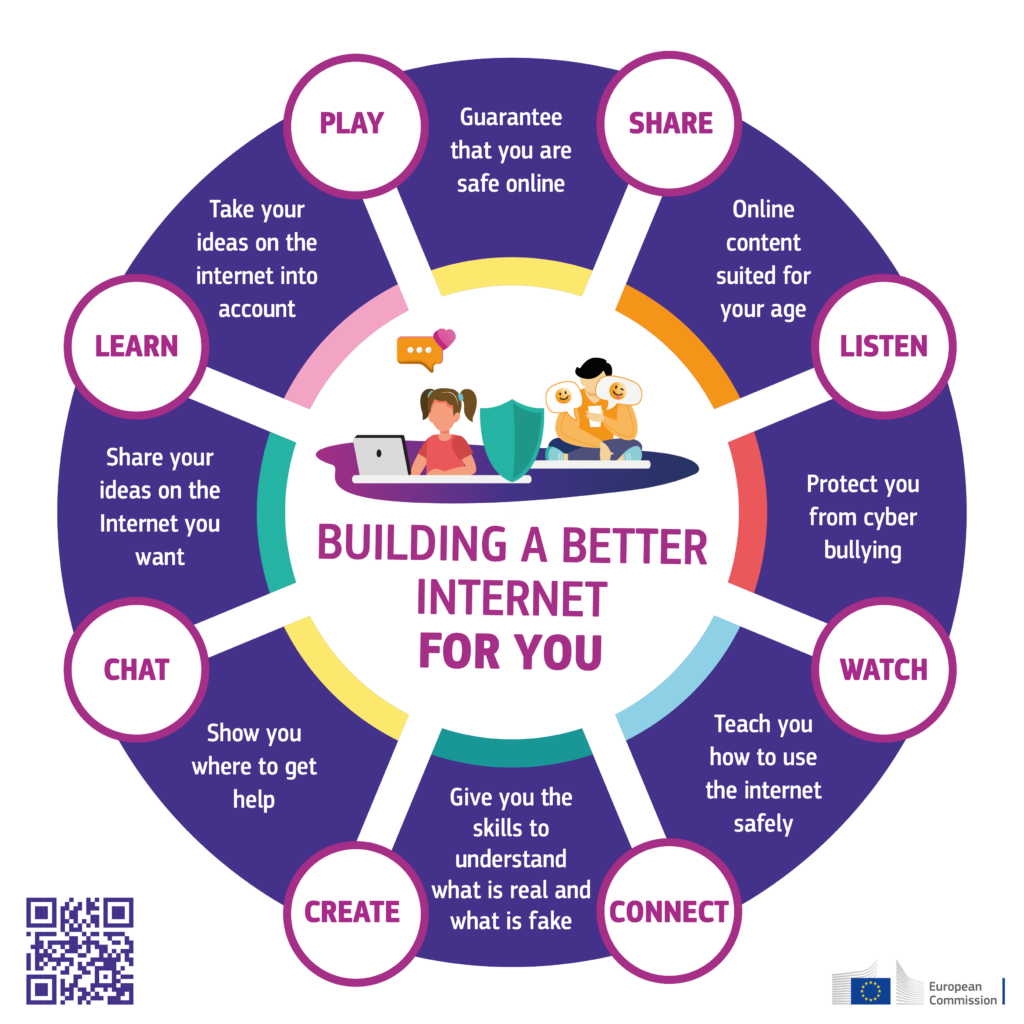New EU strategy to protect and empower children in the online world
The European Commission has adopted a new European strategy for a Better Internet for Kids (BIK+), to improve age-appropriate digital services and to ensure that every child is protected, empowered and respected online.
In the past ten years, digital technologies and the way children use them have changed dramatically. Most children use their smartphones daily and almost twice as much compared to ten years ago. They also use them from a much younger age (see EU Kids online 2020). Modern devices bring opportunities and benefits, allowing children to interact with others, learn online and be entertained. But these gains are not without risks, such as the dangers of exposure to disinformation, cyberbullying (see JRC study) or to harmful and illegal content, from which children need to be sheltered.
The new European strategy for a Better Internet for Kids aims for accessible, age-appropriate and informative online content and services that are in children’s best interests.
The new European strategy for a Better Internet for Kids is the digital arm of the Commission’s comprehensive EU strategy on the rights of the child and reflects the digital principle ‘Children and young people should be protected and empowered online’.
It has been adopted together with a proposal for new EU legislation to protect children against sexual abuse.
Moreover, the strategy follows the recent landmark provisional political agreement on the Digital Services Act (DSA), which contains new safeguards for the protection of minors and prohibits online platforms from displaying targeted advertising based on profiling to minors.
These matters were also given prominence in the Conference on the Future of Europe, where the European Citizens Panel dealing with Values and Rights called for increased protection of minors online. This was endorsed up by the Conference Plenary and is included in a Proposal contained in the Final Report of the Conference that was presented to the Presidents of the European Parliament, the Council and the European Commission.
Download Strategy to protect and empower children in the online world.
Strategy principles and pillars
The new strategy is based on three key pillars:
- Safe digital experiences, protecting children from harmful and illegal online content, conduct, and risks and improving their well-being through a safe, age-appropriate digital environment.
To make the digital world a safe place for children and young people, the Commission will facilitate an EU code for age-appropriate design and request a European standard on online age verification by 2024. It will also explore how to use the planned European Digital Identity wallet for age verification, support the swift reporting of illegal and harmful content and ensure the single harmonised number ‘116 111′ provides assistance to victims of cyberbullying, by 2023.
- Digital empowerment so that children acquire the necessary skills and competences to make informed choices and express themselves in the online environment safely and responsibly.
In view of fostering the empowerment of children in the digital environment, the Commission will organise media literacy campaigns for children, teachers and parents, via the network of Safer Internet Centres, the backbone of the strategy. It will also provide teaching modules for teachers via the betterinternetforkids.eu portal. The network of Safer Internet Centres in Member States, active at national and local level, will strengthen support for children in vulnerable situations and help address the digital divide for skills.
- Active participation, respecting children by giving them a say in the digital environment, with more child-led activities to foster innovative and creative safe digital experiences.
To increase children’s participation in the digital environment, the Commission will, for instance, support more experienced children teaching other children about online opportunities and risks, as well as organise a child-led evaluation of the strategy every two years.
To implement these key pillars, the Commission is inviting Member States and the industry to come on board and support related actions.
Background
The strategy builds on the European Strategy for a Better Internet for Children adopted in 2012. The latter has influenced national policies across the EU and has been recognised internationally: for instance, the annual Safer Internet Day is celebrated worldwide. Actions aimed at fighting fake news, cyberbullying and exposure to harmful and illegal content are reaching thousands of schools and millions of children, parents and teachers every year.
In March 2021, the Commission adopted its first-ever comprehensive EU strategy on the rights of the child, which called for an update of the 2012 Better Internet for Children strategy.
To this end, more than 750 children and young people shared their thoughts and views on online safety, content and skills in around 70 consultation sessions organised by the Safer Internet Centres across Europe in spring 2021. Surveys and other consultations were also organised with parents, teachers, researchers, national experts in child online safety and industry partners.
The results, which fed into the European strategy for a Better Internet for Kids, show that children and young people often understand well online risks, such as harmful content, cyberbullying or disinformation, and opportunities. They also wish to have their voice heard in matters concerning them. However, many children and young people in Europe, especially those in vulnerable situations, are still not fully included in the digital world. Factors behind this exclusion include poverty, lack of connectivity, lack of suitable devices, and lack of digital skills or confidence.
New Better Internet for Kids Strategy InfographicBIK_infographic_
Download child-friendly version BIK+






